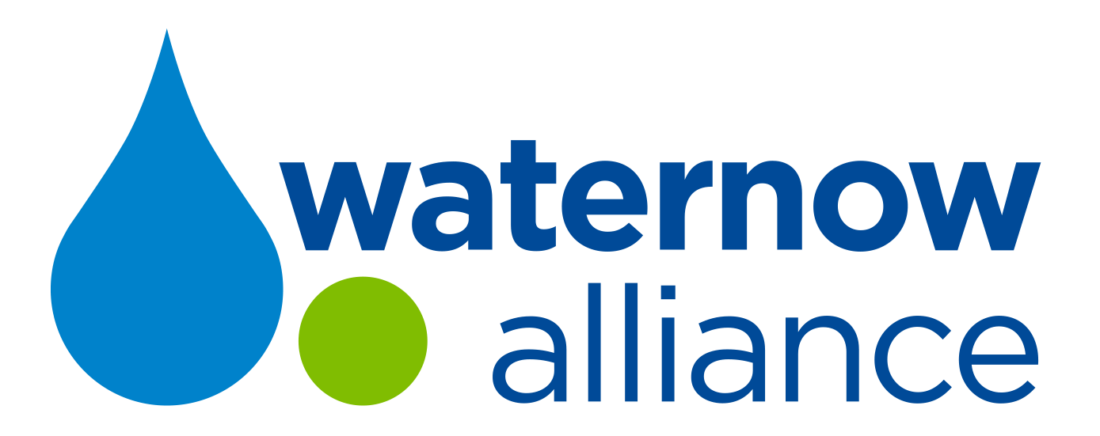We're excited to welcome Caroline to the WaterNow Alliance Team as our new Water Policy Specialist. Caroline is an environmental attorney with broad experience representing non-profit organizations advocating for the protection of California's water and public trust resources. She was previously a partner with Lawyers for Clean Water Inc., and a Legal Research Attorney at the San Francisco Superior Court. Caroline manages WaterNow's portfolio of policy initiatives at local, state, and federal levels related to sustainable water use.
I spoke with Caroline about her past work and her excitement about working on policies to help ensure a secure and sustainable water future for all.
What initially compelled you to pursue a legal career focused on clean water issues?
As a child growing up in North Carolina, I was lucky and spent a lot of time outdoors especially around water. We had a creek in our backyard, vacationed on the coast where the Cape Fear River meets the Atlantic Ocean, and went canoeing on the New River. These early-life experiences taught me the value of water. And it didn't hurt that my water-conserving parents always told us to "turn the water off." So when it came time to choose how I'd spend my time in the world, working to preserve and protect one of our most valuable resources seemed like the best choice.
At Lawyers for Clean Water, you worked to enforce state and federal regulations governing water quality standards. What did you find compelling about this work?
My work at Lawyers for Clean Water on behalf of environmental citizen groups was split between enforcing the federal Clean Water Act and seeking to compel California regulatory agencies to carry out their duties imposed by the State's constitutional reasonable use doctrine and the public trust doctrine to ensure the reasonable and beneficial use of water and to preserve trust resources. Together, these federal and state laws are meant to protect not only the quality of our water but also keep it from being wasted. Protecting water quality and preventing waste by upholding these mandates in an integrated way means that all Californians will have access to clean water while leaving vital water behind for our fish and wildlife.
Can you provide an example of a case you worked on that resulted in improved water management?
Yes! We worked with the City of Malibu on behalf of Los Angeles Waterkeeper to address some pretty serious challenges with the City's municipal storm water discharges to the Mugu Lagoon to Latigo Point Area of Special Biological Significance and various Malibu beaches, including the iconic Surfrider Beach. These municipal storm water discharges carried pollutants including bacteria and heavy metals to the ocean resulting in multiple beach closures and environmental and health impacts. In the end, we were able to reach a settlement that worked for everyone. Malibu agreed to build rain-water harvesting, infiltration or treatment devices to catch storm water before it is drains to the City's beaches and eventually the Pacific Ocean, among other measures, and funded an ocean health assessment of Santa Monica Bay in collaboration with scientists at Cal State Northridge.
Why were you interested in joining WaterNow Alliance?
This is an exciting opportunity to work directly with water leaders interested in making integrated water management - which had become a larger part of my legal practice over the past four years - a reality. Litigation is an important tool, and I gained invaluable experience in my decade of practice. But given the ever-increasing need for water conservation and efficiency, I felt it was time for me to turn my focus on advocating for policies that would clear the way for the very programs WaterNow Alliance has been working on for the past three years.
Which of WaterNow's current policy initiatives excites you the most? Why?
I am looking forward to working on WaterNow's collaborative efforts with partners in Colorado to advance integrated water management and land use planning. Taking a holistic approach to how we use our resources just makes sense and I'm excited to have the chance to help water suppliers and land use planners realize that goal.
How can WNA Members and others become involved in this effort?
There are a lot of opportunities for integrated water and land management. WNA members can start by updating general plans to support coordination between water and planning departments, enacting local ordinances that encourage citizens' efficient water use (e.g., time of day watering requirements or requiring developments to demonstrate an adequate supply of water before approval), and by creating incentives for residents to install native landscapes or smart controller irritation systems among other things.
Lastly, given your experience, is there a particular strategy that you think has the most unlocked potential to address the many challenges facing local urban water utilities?
"Conservation and efficiency first" combined with integrated, holistic resource planning has the most unlocked potential for securing our water future. Local urban water utilities often face many of the same challenges that confront us at the state and national level, but local utilities are uniquely situated to address these issues. They have the tools to use a multi-faceted approach tailored to the particular needs of their community. And they have the flexibility to make conservation and efficient use of water happen through improved outreach, infrastructure, etc., then to reasonable and beneficial water reuse, and finally, if still needed, to traditional supplies and storage.

